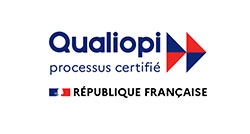
Live from Expat Communication's Club Expat Premium
Every activity abroad has its cultural challenges. This applies particularly to recruitment. Managing an expatriate recruitment process is a fine exercise in intercultural intelligence. Club Expat Premium therefore interviewed Isabelle Larché, a headhunter in Singapore. 15 years ago, she set up Timeo-Performance, a recruitment consultancy specialising in Singapore and South East Asia, with a large number of French companies as clients. She shares with the Club’s expatriates the fruit of her years of experience in international headhunting and identifies 7 pitfalls to avoid when recruiting abroad.
Pitfall 1 - Looking for a profile by modelling ourselves on the models of our home market
« I want someone who has done an IUT in technical sales. »
In France, sales people are often both commercial and technical. The temptation is to copy the job description. But in Asia, that doesn’t work. We’re going to have to reduce the scope and organisation, probably by taking on two people : a salesperson and a technician. Or get more involved in the pre sales. This example is typical of a lack of cultural imagination.
Our advice : find out about the local market beforehand.
What types of skills corresponding to the position? Which profiles? What are the management needs ? Three watchwords: anticipation, imagination and flexibility !
Pitfall 2 - Sticking to the French long view
When it comes to the recruitment process and communication with candidates, we don’t have the same rhythm. Here in Asia, I expect an answer within the hour; beyond that, I’m worried.
In France, there is no such sense of urgency. There is a tendency to wait for the profile to approach perfection, which creates a longer wait for both parties.
Our advice: anticipate this cultural gap and force yourself to respond much more quickly than we usually do.
Pitfall 3 - Overestimating the prestige of French companies on the market (asymmetry of perception)
Some French clients mistakenly think that local candidates will be attracted by working for a French company. This is true for certain sectors such as luxury goods, cosmetics and luxury retail. But this is far from true for the industry.
What’s more, candidates may be put off by a very French hierarchical structure, in which they will find it difficult to see themselves in the medium term. Today, a young Chinese will prefer to join a Chinese company because he thinks he will have easier access to top management.
Our advice: you’re going to have to seduce in a different way.
In particular, this will have an impact on pay. In France, we tend not to ask for much of a raise between jobs. 6-7% already seems a lot to us. Here, when there is a 20% increase, it seems reasonable to us. “If he cares about us, he’ll make an effort”, we often hear. But does he really care about us?
Pitfall 4 - Streamlining the onboarding phase
An essential cultural point to bear in mind: in France, we separate personal and professional aspects, and there are many limits. In Asian culture, when you take on a new job, you also take on a family. The manager is like a father: he takes care of you, nurtures you and knows when something is wrong. So it’s vital that you don’t limit yourself to simply administrative onboarding in Asia.
Our advice: personalise your welcome.
Don’t hesitate to take your new recruit out to lunch and introduce him or her to the members of the team. This is especially true for countries like Thailand and Vietnam. It’s customary to ask about the family, the children and life at home.
Trap 5 - Selections as traps
A classic bias stemming from our education system: an interview with trick questions, with an almost mechanical flow, will be experienced in Asia as very disturbing, even confrontational. We’re not here to test, we’re here to make you feel at ease!
An anecdote from recent years. A fashion retail group is opening a subsidiary in Asia and recruiting its first employee for a key position. He asks us to find a 5-legged sheep.He asks us to find a 5-legged sheep. A risk-taking financier, an independent and experienced young person. I find the pearl (and 14 years later, he’s still in post). I warn the customer that there won’t be another one.
After the interview, I debrief the candidate. “It was a disaster, I completely failed. I couldn’t ask my questions. I couldn’t speak. I don’t know if I want to go.”
The customer called me an hour later and said “I’m delighted, I tried to get it stuck on everything and it held up really well”.
I had to do a mediation interview to show that it was cultural.
Our advice: don’t try to trick us
Why seek conflict? In Asia, you won’t have to do eliminatory interviews, but rather discovery interviews. Test creativity, not resilience. Otherwise, in most cases, you will lose an excellent candidate.
Pitfall 6 - Using the wrong levers
The speech
Seduction by the size of the mission or by environmental criteria will not have the same weight with your candidate. A bit of purpose is important, but the employee is not there to save the world. Saving your family is good enough.
The job and HR development
Here, it is important to take the status of the job seriously. The terms Senior, VP and Director make all the difference. Vis-à-vis the family, but also the people we talk to. And if we’re talking about career prospects: yes, but it’s mainly about the speed of internal promotions. In Asia, employees can come back to you after 6 months to talk about the next step, because cycles are very short. On the other hand, the training you receive before taking up your new job is of real value. It can make a real difference for roughly equal pay.
Our advice: create stages, functions and titles to give you more scope for career progression.
Salary and overall package
Bear in mind elements that are not valued in France but are essential in Asia. Firstly, health insurance. We also need to talk about benefits in kind: in some countries, such as Indonesia, the car and driver are part of the expected benefits. When it comes to holidays… don’t even think about it! The employer decides. Point. Are we ready to accept 5 French weeks? In Asia, people prefer to be paid. In addition, the number of days off per year is between 14 and 19.
Working conditions
As in France, hybrid office-teleworking is in high demand.
Our advice: ask the candidate what they prefer and how they think they can be most productive.
Pitfall 7 - Underestimating market tension
In Singapore, for example, the market is extremely tight: you have 100 applicants for 180 vacancies. So much so that a French manager with a very strong culture of oral engagement misses the warnings and may think he is recruiting when in reality he is helping a candidate who is just looking for a higher salary. He’s just looking for a contract to prove his worth internally.
Our 1st tip – Focus on retention. It’s often said that in Asia, people can get away for €50. However, like anywhere else, it is possible to retain talent with quality management. A “coach” type of manager who helps his teams to grow, who entrusts them with projects and who shows them off. In Asia, yes, it helps with retention. The French are renowned for this type of leadership.
Our 2nd piece of advice – Reinforce the feeling of belonging and to do this, you can take advantage of the head office, have the teams travel around France, etc. It can touch and interest. It’s also socially rewarding.
Our 3rd piece of advice – Give short-term perspectives for better monitoring: in Asia, teams need to have short-term, weekly or even daily objectives.







